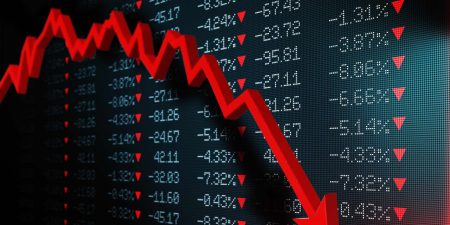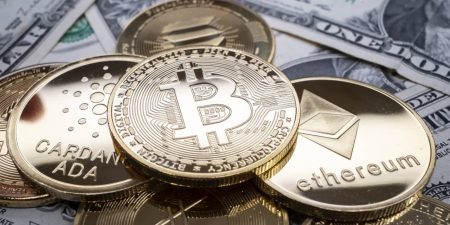Gold prices ended Monday at their lowest in a week, pressured by strength in the U.S. dollar as investors awaited the Federal Reserve’s decision on interest rates at Wednesday’s conclusion of the central bank’s two-day July policy meeting.
Price action
-
Gold for August delivery
GC00,
+0.09% GCQ23,
+0.09%
fell $4.40, or 0.2%, to settle at $1,962.20 an ounce on Comex. That was the lowest most-active contract settlement since July 17, FactSet data show. -
Silver futures for September delivery
SI00,
+0.75% SIU23,
+0.75%
declined by 27 cents, or 1.1%, at $24.58 an ounce. -
October platinum
PLV23,
+1.36%
settled at $969.50 per ounce, down $2.70, or 0.3%, while September palladium
PAU23,
+1.83%
declined by $17.70, or 1.4%, to $1,268.80 per ounce. -
September copper
HGU23,
+1.39%
tacked on 4 cents, or 1%, to $3.86 per pound.
Price action
Gold prices have climbed month to date after the July CPI report released midmonth showed price pressures ebbing more quickly than expected last month.
Assuming the Fed follows through with a widely-expected interest-rate hike on Wednesday, investors will be watching closely for signs of how this latest data point may impact the central bank’s plans going forward. Expectations that the July hike might be the final one for the cycle have helped to boost gold prices, while causing the U.S. dollar
DXY,
to weaken for the month so far.
The Federal Open Market Committee meeting this week will be the “direction setter for the gold price, with the level of perceived dovishness or otherwise from the Fed likely to have a big say in whether the precious metal makes another run” toward the $2,000 level soon, said Tim Waterer, chief market analyst at KCM Trade, in market commentary.
Read: Everyone thinks the Fed’s rate hike this week will be the final one — except the Fed
Gold futures continued to trade lower, pressured by strength in the dollar
DXY,
after the release of S&P surveys Monday showing the U.S. economy grew in July at the slowest pace in five months.
The S&P Flash U.S. services-sector index fell to 52.4 from 54.4 in the prior month. That’s the lowest reading since March. The S&P U.S. manufacturing sector index, meanwhile, rose to 49.0 from 46.3, but it’s been negative for months.
Looking ahead, the Fed isn’t the only central bank meeting this week: the European Central Bank and Bank of Japan also have policy meetings on the calendar that could impact global markets.
Read the full article here















